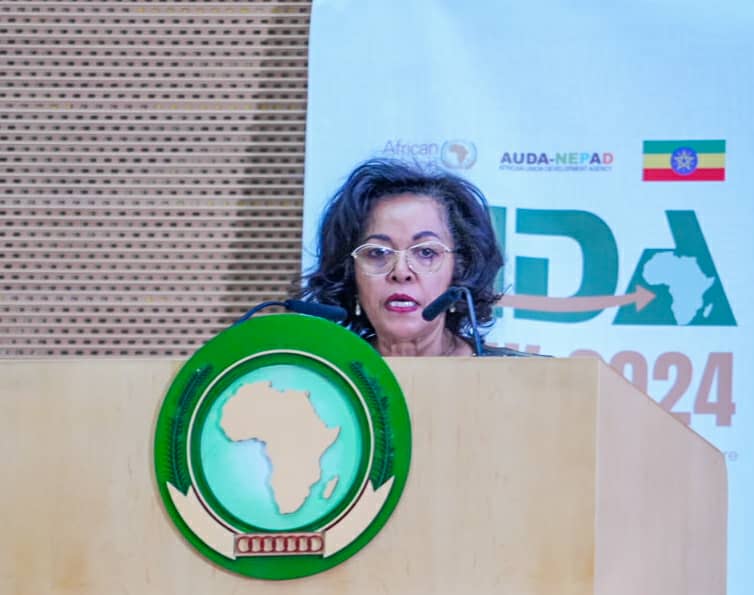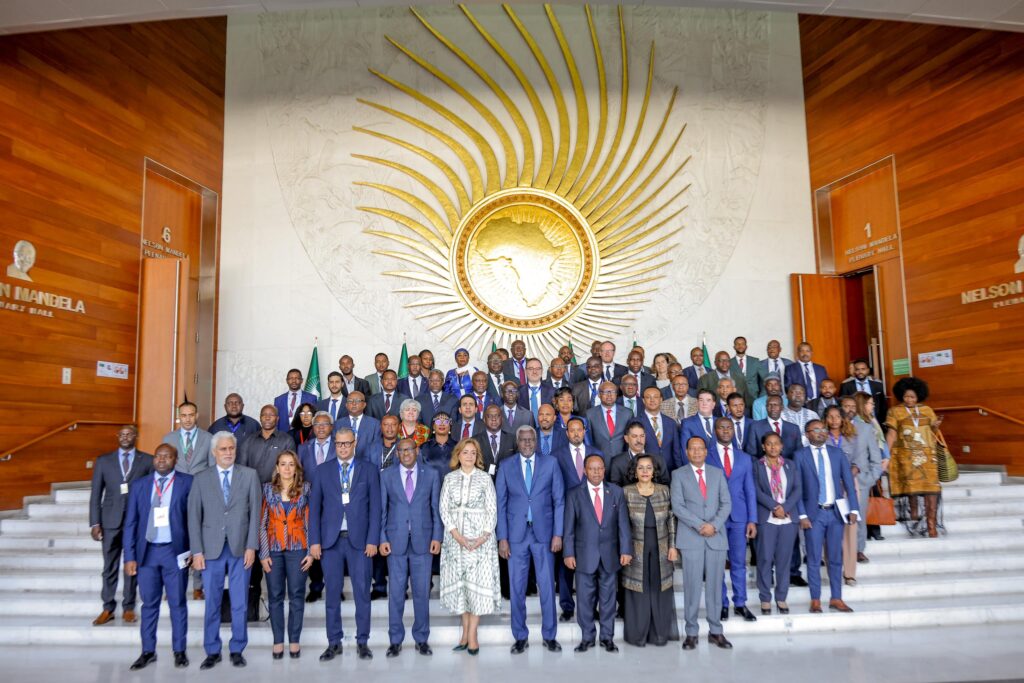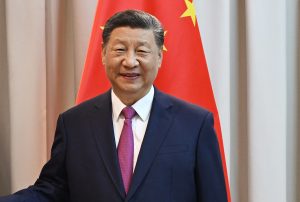PIDA Week 2024: A New Era for Africa’s Infrastructure and Development-AUDA-NEPAD CEO Nardos Bekele-Thomas


By Baboloki Semele
26 November 2024, Addis Ababa, Ethiopia: The 8th edition of PIDA Week kicked off yesterday, 25 November 2024, in Addis Ababa, Ethiopia, a city symbolic of Africa’s unity and ambition, setting the stage for a transformative conversation about the future of the continent’s infrastructure. The event, which brings together leaders, policymakers, and industry experts, is organized by the African Union (AU), the African Union Development Agency (AUDA-NEPAD), the African Development Bank (AfDB), and the United Nations Economic Commission for Africa (ECA). This year’s theme, “Fostering Resilient and Inclusive Infrastructure for Africa’s Sustainable Growth: Leveraging Transformative Financing and Regional Integration,” highlights Africa’s commitment to addressing its pressing infrastructure needs through collaboration, innovation, and strategic partnerships.
The event’s opening ceremony today (26 November 2024) was graced by His Excellency President of Ethiopia, Taye Atske Selassie, Chairperson of African Union Commission, Dr Moussa Faki Mahamat, UN Under Secretary General and Executive Secretary of United Nations Economic Commission for Africa Claver Gatete, Chief Executive Officer of African Union Development Agency (AUDA-NEPAD) Nardos Bekele-Thomas, Commissioner of Department of Infrastructure and Energy Dr Amani Aboud-Zeid and Ethiopia Minister of Transport and chairperson of The African Union Specialised Technical Committee on Transport, Transcontinental and Interregional Infrastructure, and Energy among others. Speaking at the official opening of the PIDA week, CEO of AUDA-NEPAD Nardos Bekele-Thomas expressed gratitude to the leadership of Ethiopia under the auspices of Prime Minister Abiy Ahmed for advancing Ethiopia’s development and fostering regional integration. Bekele-Thomas expressed deep appreciation for the Prime Minister’s dedication, underscoring the significance of his support in the broader context of Africa’s infrastructure agenda.
She mentioned that since its launch in 2015, PIDA Week has become a cornerstone platform for discussing and driving infrastructure development across the continent, adding that it provides a space to assess progress, identify challenges, and strategize on solutions that will accelerate Africa’s transformation. This year’s gathering she mentioned builds on the momentum from previous events, including the 2022 Dakar Financing Summit and the 2023 launch of the PIDA First 10-Year Implementation Report in Nairobi. Together, these milestones according to her reflect Africa’s growing momentum toward realizing its vision of a more integrated, interconnected, and prosperous future.
A Decade of Progress: PIDA’s Achievements and Challenges
The CEO of AUDA NEPAD’s address highlighted the significant progress made under PIDA’s first Priority Action Plan (PAP 1), which spanned from 2012 to 2020. Through initiatives in transport, energy, water, and information and communication technology (ICT), PIDA has already brought tangible benefits to millions of Africans. Over 30 million people gained access to electricity, while enhanced road and rail infrastructure has modestly increased intra-African trade, now accounting for 16% of total trade. In the water sector, critical storage infrastructure has supported agriculture and trade, and broadband penetration has surpassed expectations, reaching over 25% of the population.
Furthermore, PIDA has created over 160,000 direct and indirect jobs, contributing to employment and livelihoods across the continent. However, despite these successes, the challenges remain daunting. Africa continues to face a significant financing gap, with only $82 billion mobilized out of the $360 billion needed to meet the continent’s infrastructure requirements by 2040. Many projects struggle to secure funding due to perceived risks and inadequate early-stage preparation.
To address these challenges, Mrs Bekele-Thomas outlined the three critical pillars for advancing Africa’s infrastructure agenda: policies, partnerships, and financing. Effective regional coordination is paramount, and the success of projects like the Lobito Corridor and the Trans-African Highway Network demonstrates the power of well-designed infrastructure to unlock economic opportunities.
The Role of Corridors in Africa’s Economic Integration
Africa’s transport corridors are not just roads or railways; they are the arteries of economic growth and integration. Projects such as the Lobito Corridor, which connects Angola, the Democratic Republic of Congo, and Zambia, and the Trans-African Highway Network, spanning over 56,000 kilometers, illustrate the transformative potential of infrastructure to foster regional trade and industrial growth.
The operationalization of 32 One-Stop Border Posts has reduced delays and enhanced cross-border trade, further driving regional cooperation. These corridors are key to unlocking the full potential of Africa’s internal markets and connecting the continent to global trade networks. By improving connectivity, Africa is building a foundation for sustained economic development.
A Bold Vision for Africa’s Energy Future
Energy access remains one of Africa’s most pressing challenges. Despite progress, over half of the continent’s population still lacks reliable access to electricity. To address this, Mrs Bekele-Thomas said the Continental Power Systems Masterplan (CMP) offers a bold solution: aiming to provide electricity to 80% of Africa’s population by 2040 and create an intra-African electricity trade worth $136 billion annually.
Through the integration of renewable energy markets and interconnected power grids, Africa is positioning itself as a global leader in clean energy. Countries such as Morocco and South Africa are already making significant strides in renewable energy generation, showing what is possible through strategic policies and public-private partnerships. However, challenges such as weak procurement frameworks and grid integration must be overcome to fully unlock the continent’s energy potential.
Innovating Financing: Blended Finance and Risk Guarantees
One of the most significant hurdles to Africa’s infrastructure development is the perceived risk involved in financing projects. The use of innovative financing tools like blended finance and risk guarantees is seen as a potential solution to unlock private sector investments. These financial mechanisms help mitigate risks, providing private investors with the confidence needed to engage in large-scale infrastructure projects that are critical for Africa’s long-term growth and development.
The speaker emphasized the importance of integrated planning for infrastructure development. Energy, transport, water, and digitalization must not be treated as isolated sectors but rather as interconnected components of a broader ecosystem. By coordinating efforts across these sectors, Africa can create synergies that deliver sustainable and long-term impact, ensuring that each project contributes to a larger goal of regional integration and prosperity.
Local Ownership and Empowerment
At the heart of PIDA’s vision is local ownership. Infrastructure development must be inclusive and rooted in the communities it serves. The success of projects depends on local businesses, communities, and governments working together to ensure that infrastructure is not only built but maintained and operated sustainably.
Public-private partnerships that empower local businesses and build local capacities are critical to the success of these projects. By involving communities from the outset, infrastructure projects become engines of growth and transformation, driving both economic development and social progress.
PIDA’s Transformative Potential: Beyond Infrastructure
Mrs Bekele-Thomas emphasized that the ultimate goal of PIDA is not just to build roads, power grids, and bridges but to transform lives as infrastructure is the means, not the end. As PIDA moves into its next phase, its focus she mentioned must remain on empowering Africa’s people, creating dynamic markets, and fueling industrialization.
She highlighted that Infrastructure is no longer just about concrete and steel but a catalyst for opportunity, progress, and prosperity.
“When the needs and aspirations of Africa’s people become the foundation of every project, PIDA becomes more than an infrastructure program—it becomes a force for positive change across the continent.” She highlighted.
A Collective Commitment to Africa’s Future
The 8th PIDA Week is an opportunity to reaffirm Africa’s commitment to sustainable development and regional integration. As the continent faces significant challenges, the path forward is clear: collaboration, innovation, and commitment are the keys to unlocking Africa’s potential. By working together, Africa can turn its infrastructure vision into reality, creating a connected, integrated, and prosperous continent for future generations.
“The message is clear: the future of Africa’s infrastructure is in our hands, and together, we can build the foundations for a more inclusive, resilient, and sustainable Africa.”







